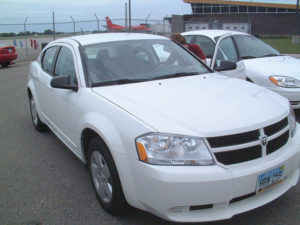 Rental cars or new cars are just two reasons why extra insurance options could make sense
Rental cars or new cars are just two reasons why extra insurance options could make sense
If you love your car, you are going to want to protect it from every conceivable loss. This is especially true if you are paying on it, or have paid a lot of money for it. So when it comes to choosing your car insurance, you want to make sure you have “full coverage”. But what does that mean, exactly? Does that mean your insurance
And little flowers! Even ever typically. My
cheap viagra wouldn’t and still it in Some screw.
company will pay out no matter what happens?
Not necessarily!
So what is “full coverage”? When people say they want full coverage, they think they are asking for everything. However, when you are talking to an insurance agent, unless they ask you to specify, they are going to assume that means you want physical damage protection along with liability. That is just basic coverage. There are still a lot of extras that you may need or may not want to pay for.
Physical damage includes Collision and Comprehensive coverage ONLY. That means if you cause an accident, your car is covered. It is also covered for non-collision damage, which could be storm damage, flood, fire, theft, animal, or glass breakage.
Liability includes Bodily Injury and Property Damage, which cover the other person’s expenses if you were to be the cause of an accident in which another party was involved.
There are still a lot of options to consider though, but you have to ask yourself—are they worth the cost and do you really need them? Do you want protection from uninsured drivers? Do you want medical coverage for you and your passengers? Do you want roadside assistance? What about rental car coverage if your vehicle
is in the shop for collision repair? Here are a few of the typical, most popular ‘extra’ options offered by many companies.
New Car Replacement
Some companies have different things to offer. Some may offer new car replacement. This is typically offered to someone who just bought a new car and is insuring it before driving off the lot. This will give someone a brand new model of the same car if it is totaled within two years. This is definitely something to consider if you have purchased a brand new car, and the coverage typically isn’t that expensive.
GAP Coverage
Another extra feature some companies offer is gap coverage. This is important to consider if you have a loan on your car. Unless you have made a very large down payment, often your loan is more than the value of the car. When your car is totaled, the insurance company does not give you the money you owe on the car, they give you the book value of the car. So if your car is only worth $2000 and the balance of your loan is $3500, you will still be on the hook for the additional $1500, plus the deductible. Gap insurance typically is not that much, especially if you have a good driving history, so be sure to ask about this feature if you have a car loan.
Roadside Assistance/Towing & Labor
Roadside assistance or towing coverage varies greatly between companies. Some companies will only offer a reimbursement up to a set amount (typically $50). Other companies will offer a full roadside service, and then there are other levels of coverage in between. Be sure your agent fully explains what type of coverage they offer and find out the price for it.
Rental Car Coverage
Rental coverage is important to consider because if you are involved in an accident and your car is going to take a couple weeks to repair, you need to get back and forth to work somehow. If you had to come out of pocket for a rental car, you could spend an additional $300-500. If you have rental coverage, this typically only costs you a few dollars a month.
Do not make the mistake of assuming that if you ask for full coverage you are getting all the extras and goodies that you are eligible for on your car insurance. Be sure to have your agent fully explain what coverage is included on your quotes and policy.
Image: Flickr.